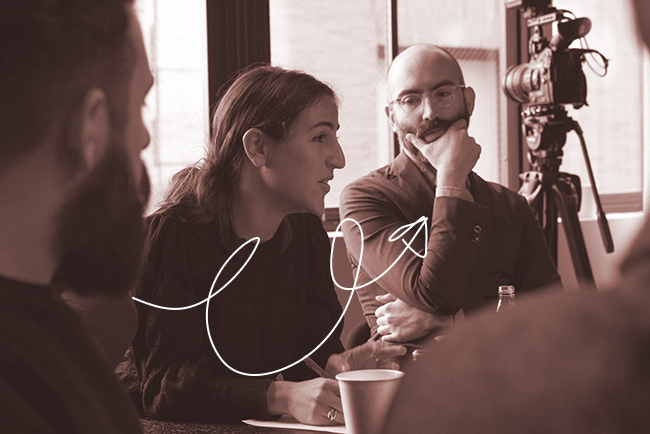The Trust Factor:
How Integrity Shapes Success

Good collaborations are driven by trust.
And trust, in my view, derives from integrity. It’s essential. But if integrity is treated as nothing more than a buzzword on a website or in a “values” statement, it becomes meaningless. Worse, there’s the danger of creating a gap between stated values and actual behavior — resulting in mistrust that can strain relationships, impede creativity, and derail even the most promising projects. On the other hand, acting with integrity builds trust, strengthens relationships, and creates the conditions for creativity and success. Acting with integrity isn’t a moral stance; it’s a strategic position.
But what does integrity really mean?
Integrity isn’t a complicated idea. It simply means honoring your word. These days that can sound quaint or outdated, but it’s at the core of every good relationship. We do what we say we will. Of course, there are times when, well, stuff happens. Situations out of our control prevent us from keeping our word. At those times, I think being integral means making things right. It means being accountable for your actions and taking action when something goes wrong. When our words consistently align with our actions, we’re not just being honest; we’re being dependable. That dependability earns trust. Trust creates a sense of safety and stability that can have enormous benefits.
How Collaborations Benefit from Trust
When collaboration spans disciplines and decisions carry long-term consequences, acting with integrity creates the stability and predictability teams need to deliver exceptional work. In my experience with good collaborators in architecture, we depend on one another to meet specifications, deliver on time, and adapt to challenges without sacrificing quality. When we trust one another, there’s a mutual respect that helps streamline these efforts and can reduce delays or overruns caused by ambiguity or hidden agendas. But without trust, uncertainty takes over. Communication breaks down. Relationships disintegrate. Decisions become unclear and haphazard. And the project suffers.
Opportunities are lost as well. Creative industries thrive on creative solutions. Trust enables innovation. When my team members feel secure and supported, I know they’re more willing to propose bold ideas or take calculated risks, confident that missteps won’t result in blame but in constructive solutions. These risks can lead to discoveries that can help us exceed expectations and even enrich future projects. This is how we learn in my practice. This is how we grow.
But of course, conflicts do arise. When that happens, the trust and integrity we have make them easier to navigate. Where trust exists, disagreements are less about finger-pointing and more about finding a path forward. Teams can focus on solving problems instead of managing interpersonal friction. This openness encourages honest dialogue to address issues directly and work toward solutions that benefit everyone. Over time, embodying our values–particularly integrity— helps us resolve conflicts more effectively and build more robust, resilient relationships that lay the groundwork for long-term success.
Fostering a Culture of Integrity
A culture of integrity begins at the top. As a leader, I try to model the behaviors I value in my partners. Aligning words and actions is key. Again, it boils down to a simple idea that can be hard to realize: I do what I say I will. “Integrity” needs to be lived every day. There are a few ways I do this.
Avoid consciously making promises that I can’t keep. Over-promising and under-delivering is a sure way to damage relationships. This doesn’t just create the danger of disappointing the client or collaborator but also the danger of overworking the entire team that was striving to deliver on that promise. It may produce feelings of resentment or alienation at all levels of collaboration and make the success of future projects less certain.
Create an environment where accountability is expected and celebrated. Make it clear it’s better to admit mistakes than try to shift blame. When teams understand that accountability matters more than perfection, they’re more likely to own their work and be honest when something goes wrong. This honesty can reduce costly miscommunication and reinforces a shared commitment to quality and creative problem-solving.
Recognize people who model integrity—whether by owning a tough decision or going the extra mile to meet a commitment. Publicly celebrating these actions also reinforces their importance, motivating teams to hold themselves to higher standards and strengthening overall trust within the organization. In my experience, this encourages others to follow suit and creates an environment where accountability becomes the norm rather than the exception.
A Lasting Impact
For me, integrity is the foundation of every great project and, along with collaboration, one of our core values. They go hand-in-hand. Integrity encompasses behaviors that are essential to operating a successful practice — accountability, openness, and alignment. These qualities inspire confidence and unlock a team’s full potential. Cultivating them not only strengthens projects but also creates partnerships—and sometimes even friendships— that last long after the final project is completed.







